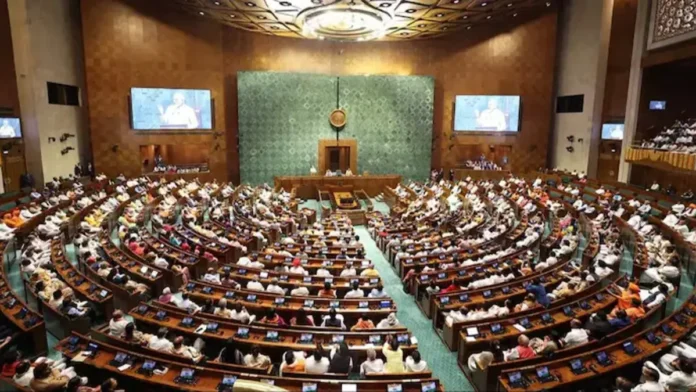Following the introduction of the Waqf Amendment Bill by Minority Affairs Minister Kiren Rijiju, which has generated intense political discussions in recent weeks, the Lok Sabha is expected to engage in a protracted debate today. Around midday, the Bill will be tabled.
The 1995 law pertaining to Waqf properties is intended to be amended by the legislation. According to the Center, the changes are meant to enhance the administration of Waqf estates in India. The proposal has been criticized by Congress and other opposition parties. They claim that the Joint Parliamentary Committee, which was established to review the bill, ignored the recommendations made by opposition MPs. They claim that the administration is moving too quickly to pass the Bill.
A whip has been issued by all of the major parties, including the Congress and the BJP, requesting that their MPs attend the introduction of the bill and take part in the deliberations. The Lok Sabha’s discussion of the Waqf law has been allotted eight hours. But this period of time might potentially be prolonged. The Bill would be presented to the Rajya Sabha if it is approved by the Lok Sabha.
The ruling BJP seems to have a lead based on the data. The TDP and JDU, two of the party’s main partners, have 16 and 12 MPs, respectively, while the party itself has 240. The NDA is predicted to receive 295 votes with additional partners, easily surpassing the 272 majority threshold. There are about 234 votes in the Congress and its supporters.
TDP and JDU, the BJP’s key allies, have considerable support among the minorities. Opposition MPs have warned the NDA allies of consequences if they support the Bill, which has drawn criticism from key minority bodies.
The TDP has said that it will back the Bill and that N Chandrababu Naidu, its leader, is fully in the Muslim camp. The government has been encouraged by the JDU not to apply the law retroactively. Following its introduction in the Lok Sabha in August of last year, the Waqf Amendment Bill was sent to a Joint Parliamentary Committee, which reviewed it and produced a report.
Contentious changes in the Bill include the provision for non-Muslim members in the Central Waqf Council and Waqf Boards. Also, Government property identified as Waqf will cease to be Waqf and the Collector will determine the ownership, it states. Secular parties have been advised to oppose the proposal and not vote in favor of it by the All India Muslim Personal Law Board, a significant organization that represents Muslims in India. According to the AIMPLB, the Bill violates several constitutional articles pertaining to fundamental rights in addition to being founded on discrimination and unfairness.




